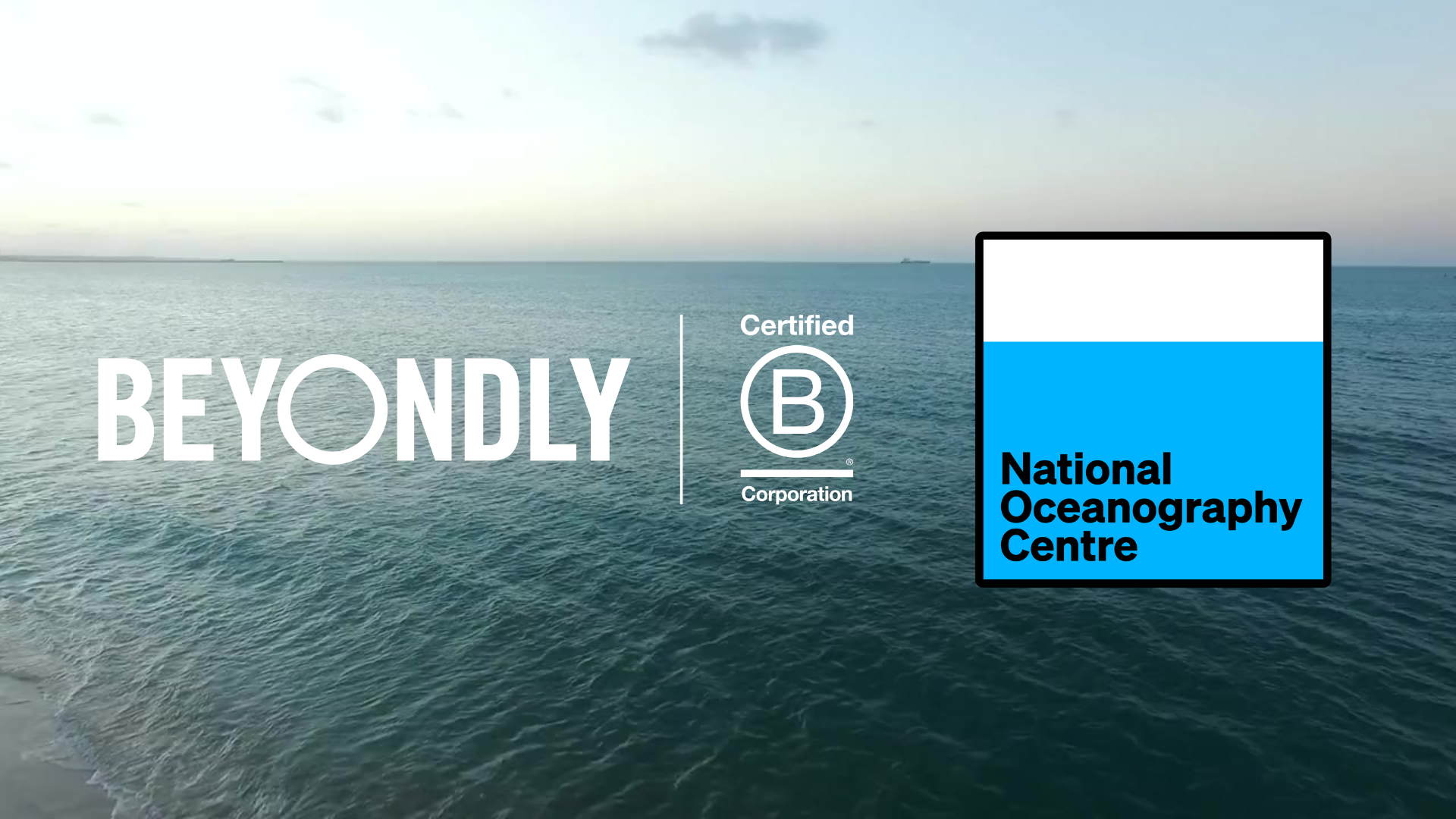An Ocean Partnership with the National Oceanography Centre; Blue Carbon Project
In 2023, the partnership between Beyondly and the National Oceanography Centre (NOC) began, two brands dedicated to protecting our ocean and support our natural world.
12 months on, we are excited to share the impact of our first project, where together we furthered UK ocean carbon research, by understanding the role of UK seagrasses in storing and sequestering carbon.
Carbon sequestration - is the capturing, removal and storage of carbon dioxide (CO2) from the earth’s atmosphere. It’s recognised as a key method for removing carbon from the earth’s atmosphere.
NOC’s role is to combat challenges facing the ocean through scientific understanding and education. As a charity they pledge to advance, innovate, enable, and share their knowledge with the global community so that together we can take action to protect the ocean we all love.
The Project
This project specifically looked to grow our understanding of the role of UK seagrasses in storing and sequestering carbon. The first leg of this remarkable project began in Porthdinllaen Bay, a site in North Wales which is a Special Area of Conservation (SAC). NOC’s blue carbon experts collected sediment cores from this site, known for the presence of both seagrass and macroalgae.
The second leg of this project took place at NOC’s research facility in Southampton where the metre-long sediment cores, representing thousands of years of history, were scanned and analysed. Through laminographic imaging, NOC were able to identify changes in grain size and date the different layers of sediment from their decay rates to establish the rates of carbon sequestration.
Data from these sediment cores have been added into a larger data base of UK seagrass sedimentary carbon. It is this range of data which creates value and will identify the factors which influence carbon sequestration and help to identify future seagrass restoration sites.
The Impact
In Summer 2024, these critical field measurements and data will be used to build an open-source computer model and decision support tool which will identify where and how to undertake seagrass restoration with maximum benefit and chance of success.
However, we have also seen immediate impact from this data. This project has been contributing to marine management discussions at national and international levels, with principal investigator Dr Claire Evans presenting evidence to the All-Party Parliamentary Group for the Ocean on the potential for financing marine restoration, and also leading a session at COP28 on marine sediment management for positive climate outcomes.
The impact of this project will be seen for years to come, as the data will be used to create evidence-based decision and inform UK policy.
Dr Claire Evans, Senior Carbon Researcher at NOC commented:
“The generous donation made by Beyondly to support NOC’s blue carbon research has vastly increased our capacity to determine the role of UK seagrasses in storing and sequestering carbon. This has facilitated a broader analysis to identify the key environmental conditions that determine the rate of seagrass carbon sequestration, and thus underpin effective restoration and enhance nature’s ability to mitigate climate change.”
What is next?
We are excited to announce that our partnership with NOC will continue throughout 2024, as we work with them to ‘Define the true impact of plastic in our oceans’. More details on this project will be shared in due course.
We encourage everyone to take a look at the work NOC carry out everyday to protect our ocean, be inspired and be part of the community shaping our oceans future - https://noc.ac.uk/
Beyondly were able to fund this project incredible through our annual Fund for Change programme, donating 5% of profits to charitable causes, read more about our fund for change here.



